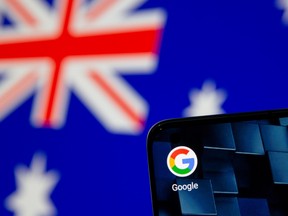SYDNEY — Australia’s leading media company, Seven West Media Ltd, has made a significant step in its relationship with technology giant Google. The company, which owns a free-to-air television network and the main metro newspaper in Perth, has entered into a licensing agreement with Google for its news content to be displayed on Google’s News Showcase platform.
Background of the Deal
This deal marks a turning point for Seven West Media as it begins to separate itself from two major Australian media rivals: News Corp and Nine Entertainment Co Holdings Ltd. Both News Corp and Nine have been unable to negotiate private deals with Google, leading them to back government legislation that would impose content fees on the internet giant in the absence of a commercial agreement.
The government bill, proposed by Prime Minister Scott Morrison, aims to regulate large tech companies like Google to ensure fair competition in Australia’s digital media landscape. By contrast, Seven West Media is taking a proactive approach by securing direct licensing rights for its news content from Google. This move could potentially prevent the need for the government to enforce its proposed content fee framework and demonstrate that private sector companies can successfully navigate regulatory challenges.
Financial Implications of the Deal
Seven West Media has seen significant financial success since the announcement of this deal. The company reported a 26.5% increase in underlying profit for the six months ending December 31, driven largely by strong performance in its advertising market. This profit surge reflects the company’s ability to capitalize on Google’s growing influence and user base globally.
Seven West Media’s share price has also seen a notable uptick, with early trading showing a 10.6% rise as of May 31, 2019. The broader Australian market was up by 0.9% during this period, reflecting the positive sentiment surrounding the company’s strategic move to secure Google’s content platform.
Legal and Regulatory Implications
The agreement between Seven West Media and Google is subject to various regulatory approvals and conditions. However, the company has expressed confidence in its ability to navigate these requirements while maintaining the quality of its news offerings on Google’s platform.
The proposed government legislation would have imposed a 1% fee on major Australian media companies for the distribution of their content across digital platforms. This fee structure was designed to ensure fair competition and prevent large tech companies from monopolizing access to content. However, as seen in the case of News Corp and Nine Entertainment Co Holdings Ltd, these measures can sometimes stifle innovation and disrupt established media ecosystems.
By securing direct licensing rights for its news content, Seven West Media is demonstrating a bold approach to navigating this regulatory landscape. The company’s ability to negotiate such a deal could also set a precedent for other media companies looking to integrate with Google or other tech giants in Australia.
Market Reaction
Seven West Media has been widely welcomed by investors and analysts as it moves forward with its strategic initiatives. The company’s decision to secure Google’s content platform has been seen as a strategic move that aligns with its long-term vision for growth and innovation in the digital media space.
Future Outlook
As Seven West Media continues to explore new avenues of collaboration with tech companies, the potential implications for other media players will be closely monitored. The company’s ability to secure Google’s content platform could also have ripple effects on the broader Australian media landscape, potentially reshaping how news organizations operate in the digital age.
In conclusion, this deal represents a significant milestone in Seven West Media’s journey as it moves forward with its strategic initiatives. By securing direct licensing rights for its news content from Google, the company is not only positioning itself for long-term growth but also challenging the regulatory framework that has previously hindered its rivals.




